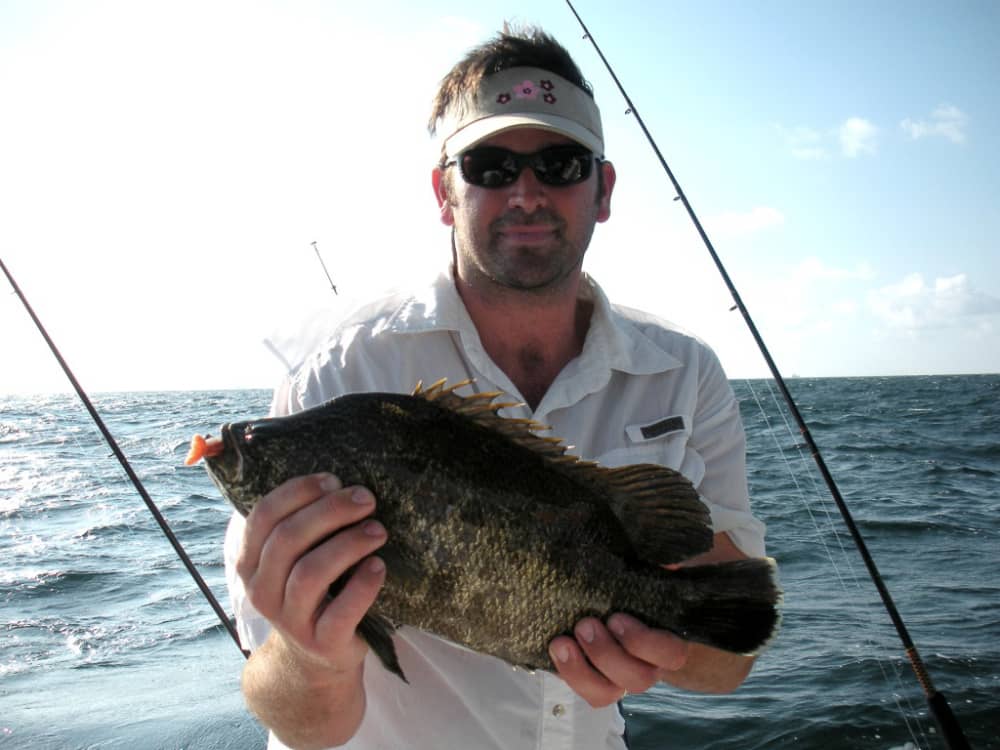Foodie News
Will the oil spill kill Texas seafood? Reef's Caswell and other chefs concerned
 Bryan Caswell isn't just a chef, he's an avid fisherman.
Bryan Caswell isn't just a chef, he's an avid fisherman. The oil spill is bringing pain to the seafood industry as well.
The oil spill is bringing pain to the seafood industry as well. The oil rig explosion could be one of the biggest environmental disasters ever.
The oil rig explosion could be one of the biggest environmental disasters ever.
With an oil slick the size of Jamaica (and growing) in the Gulf of Mexico, the oil rig explosion and the subsequent leak of crude into Gulf waters has the potential to wreck havoc on the coastal economy.
According to the Wall Street Journal, the well is leaking 5,000 barrels of oil into the water every day — that's 420,000 gallons. With British Petroleum currently unable to activate the shut-off valve, experts are estimating dramatic effects on the environment and economies of Gulf states. If the undersea valve leaks for 50 days, the spill will be larger than that of the Exxon Valdez.
Aside from the environmental concerns, seafood lovers are concerned that the spill could have a disastrous impact. Of greatest concern is the effect on shrimp, which is the largest Gulf Coast seafood industry.
"Prices are going up across the board," Reef chef/owner and avid fisher Bryan Caswell said. "It's going to hurt more of the surface animals than beneath, because the oil floats. Obviously it's really bad for birds, because it gets in their wings and they can't fly. But it also hits shrimp hard because even though they live under the water, pulling the nets in and out of the water drags them through the oil slick.
To help cut losses, Louisiana set an emergency opening of the white shrimp season on Thursday, aiming to get as many shrimp out as soon as possible before the worst of the oil hit shore. The shrimp harvest was worth $441 billion in 2008, with Texas following Louisiana as the largest producers in the country.
"The shrimp and oyster pricing is going to be immediately affected," said Louisiana Foods CEO Jim Gossen, a leading seafood distributor to Houston's restaurants. "I've already had calls from people wanting to buy large amounts, especially of the white shrimp that comes from Louisiana, up to 25,000 lbs. I just got off the phone with Kelly English, who runs one of the best restaurants in Memphis. He usually sources from New Orleans, but he wanted to see if I could help him out."
The oyster industry, still recovering after the impact of Hurricane Ike in Texas, will also be hard hit.
"Texas oysters are already done for the season because of the algae bloom, but from what I'm hearing some strong southern winds are keeping the oil to the east of the Mississippi River, which is really bad for the oyster industry," Caswell said. "East of the Mississippi, areas like Barataria Bay and Breton Sound are some the biggest oyster producers in Louisiana," Gossen added. "The problem with oysters is that they're eaten fresh, and there was already a shortage."
While Caswell is hopeful about the oil spill effects being limited by nature and human effort — he estimates that 80 percent of the fish served at Reef won't be seriously effected — everyone seems apprehensive about the situation.
"If they don't shut off the oil flow, no one knows what could happen," Gossen said. "This is something that's never happened before at this level, and we are all waiting to see how it will affect the industry long-term."

 The building at 4911 will be torn down for the new greenspace. Holland Lodge No. 1, A.F. & A.M./Facebook
The building at 4911 will be torn down for the new greenspace. Holland Lodge No. 1, A.F. & A.M./Facebook